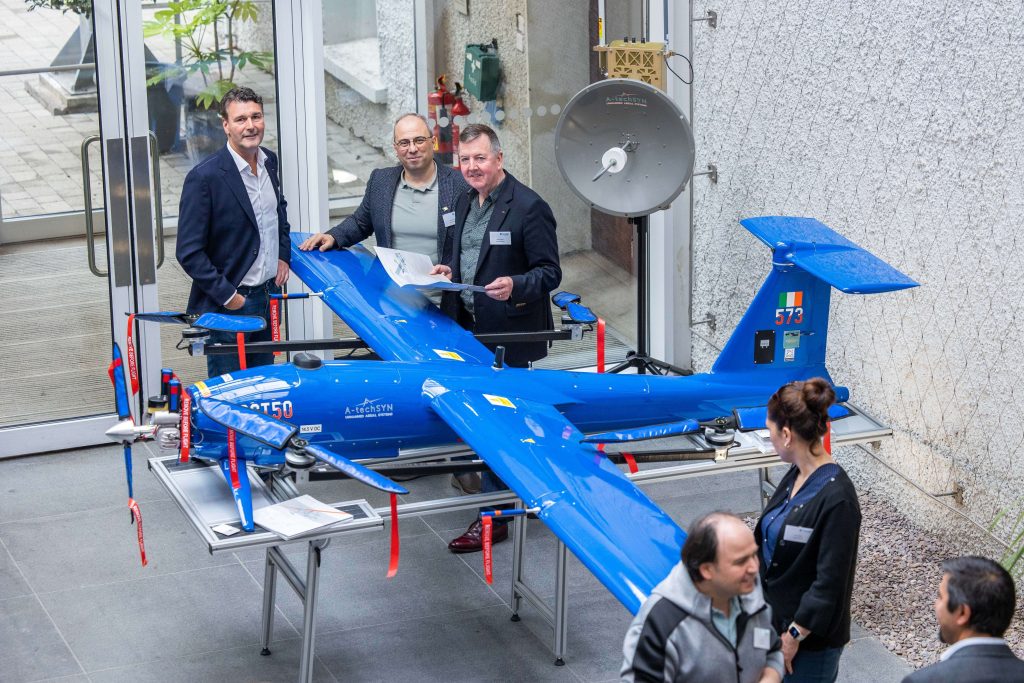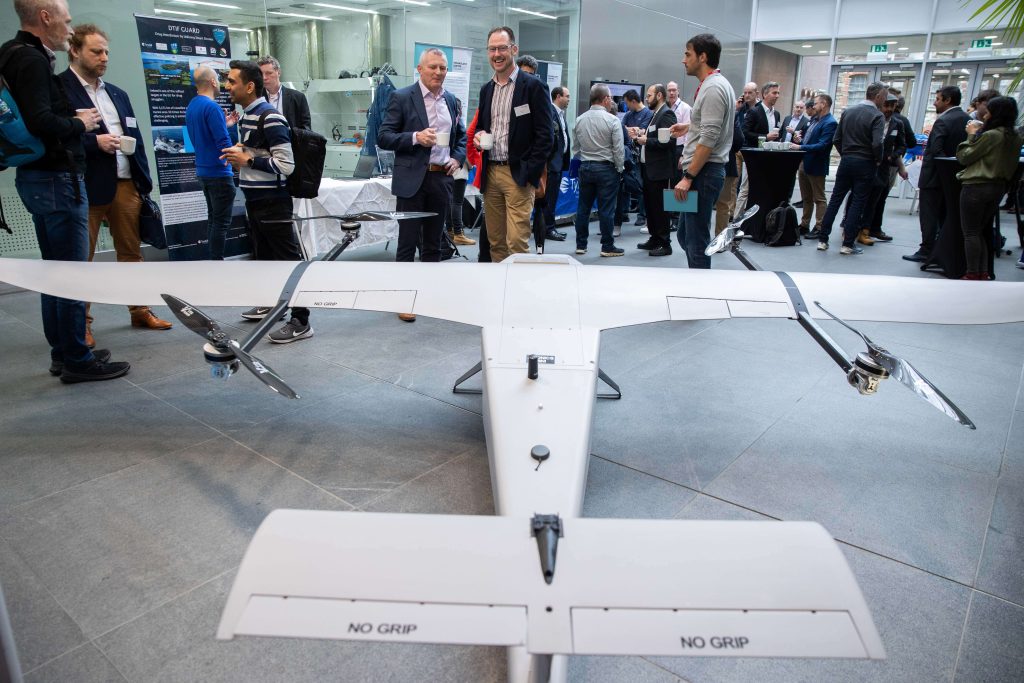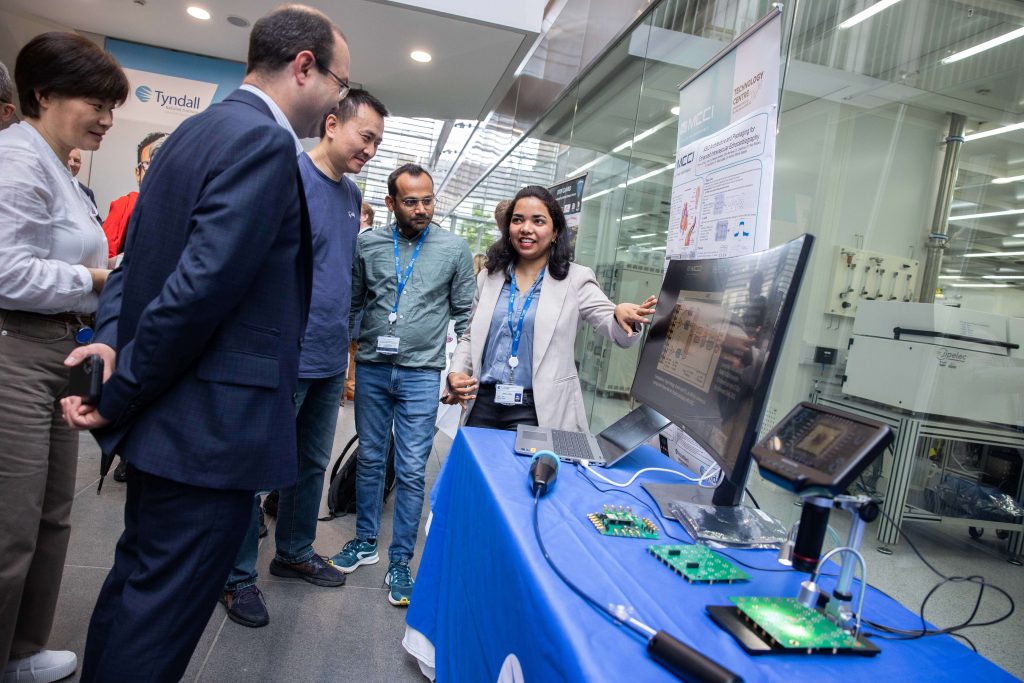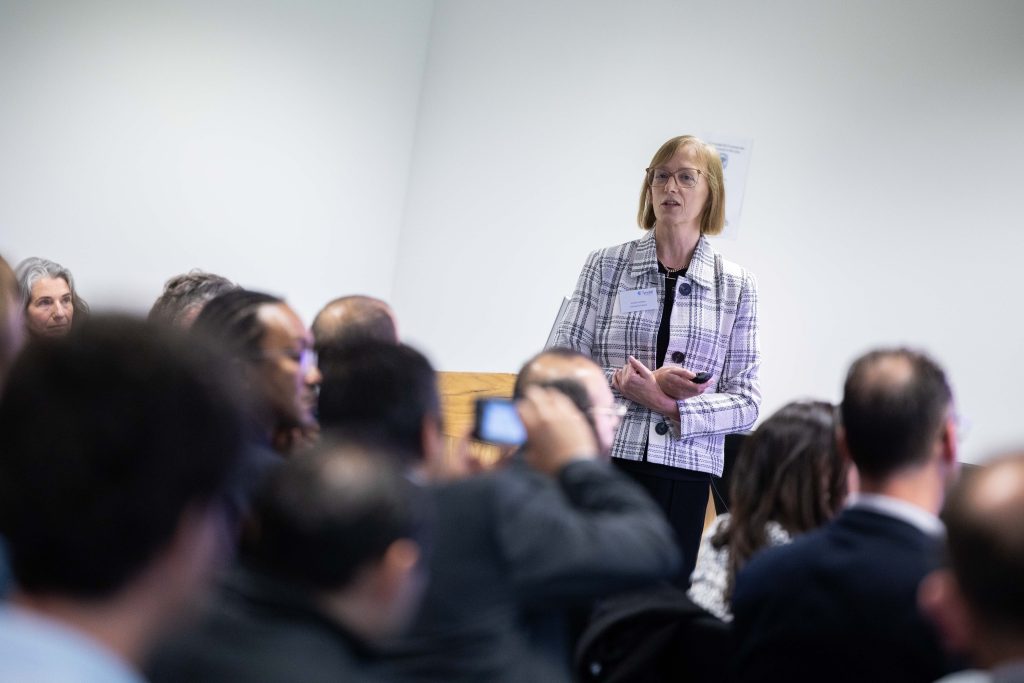Tyndall National Institute, based at UCC, showcased the groundbreaking industrial research which has been developed through the Department of Enterprise, Trade and Employment Disruptive Technologies Innovation Fund (DTIF) programme. The projects included technology advancements in the areas of MedTech, Maritime Surveillance and Drug Interdiction, and Photonics Manufacturing.
The Fund, which is administered by Enterprise Ireland, has already allocated €371 million to 104 successful projects approved under six DTIF calls. These projects cover areas such as life sciences, medical devices, ICT, artificial intelligence, manufacturing and environmental.

The GUARD project has developed world-leading smart drone technology that can efficiently survey large areas of coastline, which will revolutionize future maritime surveillance.
The GUARD project is a collaboration between Tyndall, A-techSYN, VRAI, WAZP, UCD and UL, with significant input from the Irish Naval Service.
It is widely reported that Ireland has long been a target for smugglers due to its vast coastline, and with less than 10% of smugglers caught, Ireland is a prime gateway for contraband, including drugs, into the EU.

The goal of the GUARD project is to enhance maritime surveillance and drug interdiction through equipping new medium range drones that have vertical take-off (VTOLS), can travel 800km and can land safely at sea on vessels or on land.
Key innovations of the GUARD project include:
- Fully autonomous drones capable of operating in harsh weather with 800km range;
- Reliable low-latency multi-connectivity including a gigabit mm-wave link, which is critical for real-time applications, such as controlling drones remotely;
- Automatic flight plan and permissions for operation in civil airspace;
- Automatic creation of digital twin of surveyed area & AI based video analysis;
- VR control enabling intuitive ‘human in the loop’ high value decision making.
This is a significant development in the area of coastal maritime surveillance, as traditional methods of using ships and helicopters for interception have proven to be inefficient and costly. Recent developments in drone technology have faced several challenges, including high costs, difficulty in operation, regulations, and limitations in harsh weather conditions.
Professor Holger Claussen, Wireless Communications Laboratory, at Tyndall Dublin said:
“This project has the potential to transform how Ireland and other countries survey their maritime space, while promoting Ireland as a leader in smart drones, future communications, AI, and virtual/augmented reality in a harsh environment.”

Other projects on showcase at Tyndall’s event were the Perceive project, which is developing an ultrasound-based catheter imaging system to improve the treatment of Atrial Fibrillation (a heart condition that causes an irregular heart rhythm that can lead to heart failure or stroke). The Photonics Pilot Line project has established a dedicated open-access facility for early-stage manufacturing of emerging photonic-based products, which will address key technological and manufacturing challenges for the second digital revolution.

Dr Imelda Lambkin, Manager of the Disruptive Technologies Innovation Fund at Enterprise Ireland said:
“It is fantastic to see the first ground-breaking technologies emerging from the DTIF portfolio. My congratulations to all of the consortium partners on these projects. With the announcement of the latest call 7 for applications we’re open for business and looking for new collaborations between companies and researchers to develop and deploy disruptive technologies and applications on a commercial basis.”
